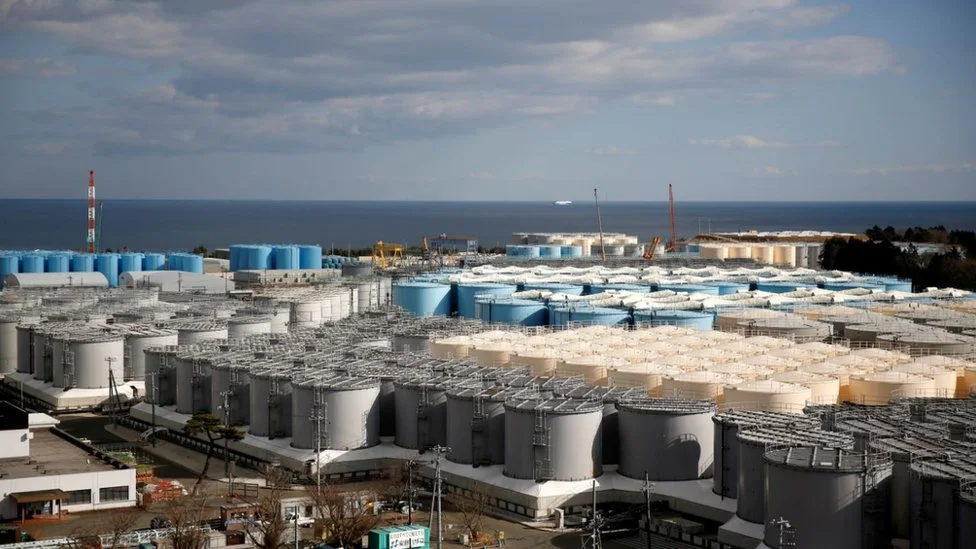Japan is poised to release treated radioactive wastewater from the Fukushima nuclear power plant into the Pacific Ocean after a waiting period of 48 hours, starting on Thursday. This decision, aimed at addressing the aftermath of the Fukushima disaster that occurred 12 years ago, has raised questions about its environmental and diplomatic implications.
Prime Minister Fumio Kishida granted the final approval for this controversial proposal during a Cabinet meeting on Tuesday. The operator of the nuclear plant, Tokyo Electric Power Company Holdings (TEPCO), has been authorized to proceed with the coastal release if weather and sea conditions are deemed suitable.
Kishida highlighted the importance of this step in the decommissioning process of the nuclear plant and the recovery of Fukushima prefecture, which faced unprecedented devastation due to the earthquake and tsunami catastrophe of March 11, 2011. The government’s commitment to safety, the reputation of the fishing industry, and a clear scientific explanation for the decision were underscored by Kishida.
“The government will take responsibility until the disposal of ALPS-treated water is completed, even if it takes several decades,” assured Kishida.
However, this decision has sparked concerns not only domestically but also across borders. Park Ku-yeon, the First Vice Minister of South Korea’s Office for Government Policy Coordination, confirmed that Japan intends to proceed with its original plan for the wastewater release. South Korea, while acknowledging the confirmation, expressed reservations over safety and pledged to intervene if the plan deviates from expectations.
The decision has triggered reactions internationally. Hong Kong and Macau declared bans on goods from Fukushima and other prefectures, while China escalated radiation testing on Japanese fisheries products, leading to customs clearance delays.
The Fukushima Daiichi plant experienced the meltdown of three reactors following a massive earthquake and tsunami that disrupted its cooling systems. The wastewater, stored in approximately 1,000 tanks with a collective capacity of 1.34 million tonnes, will likely reach its limit by early 2024.
The release of the treated water has met with resistance from Japanese fishing organizations concerned about the impact on their industry’s reputation. Similar concerns have been echoed by China and South Korea, escalating the matter into a diplomatic issue.
As Japan prepares to take this unprecedented step, the ramifications of the decision extend beyond environmental considerations, influencing international relations and trade dynamics in the region.




